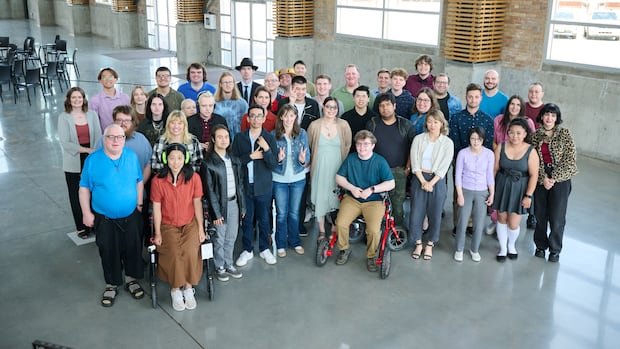Margaux Wosk, the president of disability non-profit BC People First and an autistic advocate, activist, and small business owner, initially hesitated about appearing on TV due to concerns about how autistic individuals are represented in the media. She expressed reservations about shows like “Love on the Spectrum” and “The Assembly,” which have received mixed reviews for their portrayal of autistic characters and lack of autistic actors.
Unlike some criticized shows such as “The Good Doctor” and “Atypical,” which have been faulted for misrepresenting autism traits and not hiring autistic talent, there are examples like “As We See It,” “Dinosaur,” and “Everything’s Gonna Be Okay” praised for their respectful depiction of autistic characters and inclusion of neurodivergent individuals in the production process.
“The Assembly,” originating from the French series “Les Rencontres du Papotin,” has made its way to Canada, featuring neurodivergent individuals, including those with autism, interviewing celebrities. The Canadian version, premiering on CBC Gem, showcases celebrities like Jann Arden and Maitreyi Ramakrishnan engaging with the panel in candid discussions without any topic restrictions.
The show’s success, according to Wosk, comes from actively involving autistic individuals in its creation, avoiding the common pitfall of reducing neurodivergent people to stereotypes on-screen and behind the scenes. Executive producer Sean De Vries emphasized the authenticity of the questions posed by the neurodivergent interviewers, sometimes surprising the celebrity guests with their openness.
While “The Assembly” is viewed as a positive step towards authentic representation, concerns have been raised about its potential to sensationalize neurodivergent experiences for entertainment value. Autistic writer Sarah Kurchak highlighted the importance of portraying autistic individuals as multidimensional, fully capable individuals deserving of respect rather than objects of curiosity or inspiration.
Wosk acknowledged the ongoing criticism within the neurodivergent community regarding media representation but emphasized the significance of involving autistic individuals in all aspects of content creation. She commended “The Assembly” for setting a positive example of inclusive representation and hopes for continued progress in accurately depicting autism in the media.


